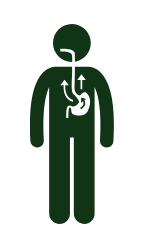Clean hands save lives - Wash your hands!

Brett Cohen MD, FACS
Chief, General Surgery
Medical Director, Weight Loss Surgery Program
Memorial Healthcare System
Dr. Brett Cohen is a board-certified general surgeon who specializes in bariatric procedures for surgical weight loss. He earned his medical degree at the University of Miami School of Medicine in 1997, and completed his residencies at Vanderbilt University, Emory University Hospital in 1999, and at the University of Miami/Jackson Memorial Hospital in 2003. He then completed his fellowship in advanced laparoscopic and bariatric surgery at the University of Southern California in 2004. He has developed a program based on compassionate and top quality surgical care here in South Florida. Please see list below for common surgical procedures performed.
Common Surgical Services

Bariatric Surgery
Hernia Repairs

A hernia is a hole or defect, typically in the muscular wall that allows a structure to pass from one area into another that is does not belong. Hernias occur for a variety of reasons and can be quite symptomatic and even dangerous at times. Common types of hernias that we see and repair include inguinal hernias, ventral hernias, incisional hernias, hiatal hernias and internal hernias. There are a variety of techniques that are used to repair these hernias and these are individually based on the type of hernia and the patient’s situation.
Bariatric surgery or weight loss surgery is the geared towards helping people lose weight. The operations are designed to help patients eat less and to eat in a very comfortable way. This helps them to be able to make good choices on a regular basis and therefore lose weight and keep the weight off. The vast majority of these operations are done laparoscopically (through a group of tiny incisions). The weight loss surgeries that are offered include the sleeve gastrectomy, Roux-en-Y gastric bypass, the Lap Band and the duodenal switch.

Gallbladder Disease
Anti-Reflux Surgery

The gallbladder is a muscular bag that lives under the right lobe of the liver. It is essentially a storage bag for bile that is made in the liver. Bile made in the liver and helps us to digest our food. The bile is stored in the gallbladder until we need it (when we eat) when it is pushed out of the gallbladder and empties into the intestines to help with digestion. The gallbladder is susceptible to various problems, the most common being gallstones and gallbladder dysfunction (biliary dyskinesia). The problems can be quite symptomatic resulting in pain and at times, significant infection and often have to be dealt with surgically.
Reflux is an extremely common disorder that effects as much as 30% of the population. That means that 1 in every 3 people struggle with issues of gastroesophageal reflux disease. The disease is on a spectrum of those that have minimal symptoms to those that require medications on a regular basis and then those that struggle even in the face of medical treatment. Reflux can be bothersome with symptoms and can be dangerous with damage that it causes. While medical treatment can quiet the symptoms, there are surgical procedures that can cure the disease and help patients get off of medications long term. The two operations that are offered for reflux disease include the Nissen fundoplication and the Magnetic sphincter augmentation procedure (LINX procedure).
Get Connected With Me
Certified. Responsive. Compassionate.




